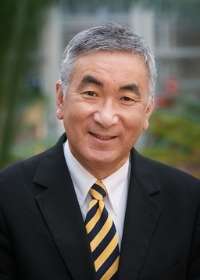

In 2014, Professor Rickey Yada was appointed Dean of the Faculty of Land and Food Systems at the University of British Columbia. Prior to UBC, Dr. Yada was at the University of Guelph where he held numerous leadership roles, including Chair, Department of Food Science, Assistant Vice President Research, Canada Research Chair in Food Protein Structure, Scientific Director of the Advanced Foods and Materials Network (Networks of Centres of Excellence) and Founding Member of the Food Institute. He is, currently, the North American Editor of Trends in Food Science and Technology as well as serving on the editorial board of several journals. Dr. Yada is the author of over 230 refereed journal publications as well as numerous book chapters and books. His areas of research includes: the structure – function relationships of enzymes (aspartic proteases) and carbohydrate biochemistry as related to nutrition and food quality. Dr. Yada serves in a leadership capacity to several research and industry organizations, some of which include Board of Trustees - Institute for the Advancement of Food and Nutrition Sciences; Board of Bioenterprise Inc.; Advisory Committee Member – Arrell Food Institute; Member of the Scientific Advisory Panels – Riddet Institute (New Zealand) and AgResearch (New Zealand). He is also a Past President and Fellow of the Canadian Institute of Food Science and Technology and the International Academy of the International Union of Food Science and Technology, and is also a fellow of the Institute of Food Technologists. Dr. Yada has an honorary DSc from the University of Guelph and was the 2019 Harraways 1867 Visiting Professor, University of Otago, New Zealand.
To say 2020 was unusual would be the epitome of an understatement. No sector was immune from the effects of COVID19 the food and nutrition area was no exception. Panic buying and shortages of certain commodities such as baking goods, dairy, and eggs were evident during the early days compounded by supply chain issues resulting in the disposal of commodities such as milk and potatoes. Additionally, the inability to convert surpluses of some commodities into alternative food products was evident. Along with COVID 19 has come the importance of relying on local food supplies and the importance of food processing to extend availability, i.e., food security. The issue of getting healthy food choices to those in need remains pertinent. For some, COVID19 has also helped discover cooking and the exploration of recipes. However, with restrictions of personal movement and the closure of facilities such as gyms, the inability for physical exercise and its impact on health status has been evident. This talk will give an overview of the above issues as they relate to “Food processing at the nexus of COVID, nutrition and food security”.